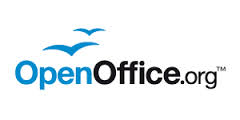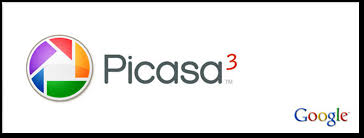Software for free
July 2014
Last time, I discussed buying a new computer (click here); but once that’s done, there is still the cost of software, most of which is a long way from free. I have some good news: it is possible to equip yourself with a full set of free, legal software. Much of it is all you will ever need and you’ll never again be forced to cough up for new stuff when software is discontinued.
 Real enthusiasts can even entirely free themselves from the yoke of Microsoft or Apple. The secret is using a combination of software that is either given away (often to encourage you to buy a better version) or created by the “open-source” movement.
Real enthusiasts can even entirely free themselves from the yoke of Microsoft or Apple. The secret is using a combination of software that is either given away (often to encourage you to buy a better version) or created by the “open-source” movement.
Open-source groups are fascinating; they are self-supporting, grass roots collections of software buffs who harness the power of crowd based research. The original software designer makes the source code (that is, the magic formula that makes it work) freely available for others to use and modify; everyone chips in, and the software grows and improves naturally. This is the opposite of proprietary software; those source codes are closely defended, and you usually pay to use them.
The open-source approach brings the benefit of a limitless pool of enthusiastic, free talent working on improvements, but there are risks – the crooks might put in just as much effort finding flaws to exploit.
However, the proof of the pudding is in the eating, and most main-stream open-source software is trouble free, even though some of it does have a reputation for being rather more attractive to purist enthusiasts than to the rest of us.
Take, for example, the heart of a computer: the operating system; Windows, perhaps, or something else if you use an Apple. A new version of Windows 8.1 will cost you about £80.
 The Linux penguinIn theory, rather than paying for Windows on your computer you can use a free operating system based on open-source Linux; Ubuntu is probably the best known. It works well, but it looks different to Windows so may confuse some less expert users. The theory is fine, and going windows-free is a noble aspiration, but buying a computer with Linux installed seems to save very little money. Attractive as being free from bondage to Bill Gates is, I wonder just how worthwhile it is for most of us.
The Linux penguinIn theory, rather than paying for Windows on your computer you can use a free operating system based on open-source Linux; Ubuntu is probably the best known. It works well, but it looks different to Windows so may confuse some less expert users. The theory is fine, and going windows-free is a noble aspiration, but buying a computer with Linux installed seems to save very little money. Attractive as being free from bondage to Bill Gates is, I wonder just how worthwhile it is for most of us.
What’s more, not all software will work on Linux, and some hardware (like scanners or printers) may struggle. There are many clever work-arounds, but they are really the preserve of the devotee rather than the innocent.
 Much more useful to most of us is the open-source or free software that can replace the expensive products we need to actually do anything, such as Microsoft Word, Excel, Outlook, PowerPoint and so on; also design software like Adobe Illustrator. The usual Microsoft products alone can easily cost you over £100 for one machine, or (as Microsoft prefers) £80 per year for five machines; Illustrator can cost hundreds of pounds for a single copy. So why not consider LibreOffice or OpenOffice.org, either of which will give you word processing and
Much more useful to most of us is the open-source or free software that can replace the expensive products we need to actually do anything, such as Microsoft Word, Excel, Outlook, PowerPoint and so on; also design software like Adobe Illustrator. The usual Microsoft products alone can easily cost you over £100 for one machine, or (as Microsoft prefers) £80 per year for five machines; Illustrator can cost hundreds of pounds for a single copy. So why not consider LibreOffice or OpenOffice.org, either of which will give you word processing and  spread sheet software that will happily suit most normal users and is fully compatible with the Microsoft versions so that you can read what others send you. If you work with pictures, many people use GIMP rather than Illustrator.
spread sheet software that will happily suit most normal users and is fully compatible with the Microsoft versions so that you can read what others send you. If you work with pictures, many people use GIMP rather than Illustrator.
For email I always recommend Thunderbird as a free alternative to Outlook or the long defunct Outlook Express. Reliable free antivirus software is readily available (click here); there is plenty of free software for accounting (such as Turbocash), photo management (Picasa) and even flight simulators (Flightgear).
So, next time you buy a new computer, before you fork out for the usual software, why not test some of the free alternatives; you may be pleasantly surprised.




